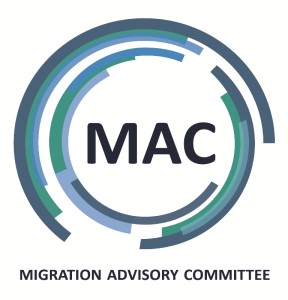Migration Advisory Committee welcomes social care commission (accessible version)
Published 8 July 2021
Kevin Foster MP
Minister for Future Borders and Immigration
Home Office
2 Marsham Street
London
SW1P 4DF
7 July 2021
Dear Minister for Future Borders and Immigration,
Thank you for your letter of 6 July 2021 commissioning the Migration Advisory Committee (MAC) to advise on the impacts of ending freedom of movement on adult social care[footnote 1]. This follows a commitment made in the House of Lords during consideration of the Immigration and Social Security Co-ordination (EU Withdrawal) Act 2020. We accept the commission and will report at the end of April 2022.
This is a major piece of work on a complex and important issue. We have seen, during the pandemic, how vital social care is to the health and wellbeing of the UK population. The ending of freedom of movement, following the UK’s exit from the EU, has often been cited as being likely to have a negative impact on social care. You have asked us to consider the size and shape of this impact and potential mitigations, if required.
As part of our response to this commission the MAC will conduct a programme of engagement across the nations of the UK, with Governments, employers, social care workers and other interested parties. We will run a public Call for Evidence to help us produce a report that reflects the wide range of views across the UK and makes use of information respondents are able to provide. We will start our Call for Evidence soon and intend to leave it open for 12 weeks to allow sufficient time for responses in what, understandably, is a busy period for all involved with social care. We also intend to undertake primary research with providers of, and workers in, adult social care to understand their experiences and the impact of ending freedom of movement on them. In addition to this, as an evidence-based body, it is also important for us to be able to undertake the necessary data analysis and modelling to fully inform our response. This will be helped by having access to the necessary data, in a timely fashion, in a form suitable for analysis. We will work with government departments including Home Office, ONS, DHSC, Skills for Care and equivalent bodies within the Devolved Nations to obtain and analyse relevant data. We will want to consider, where feasible, the differential impacts and experiences by personal characteristics, such as gender, age etc.
Given the complexity of the issues the MAC also plans to make use of expert advisors on social care to assist the committee for the duration of this report: this is an approach that is frequently taken by other Home Office advisory bodies, such as the Advisory Council on the Misuse of Drugs, on challenging topics. We will liaise with the relevant teams within Home Office to facilitate this, following all the usual good practice around spending public money.
We will need to work closely with DHSC to ensure we are aware of, and understand potential impacts of, any other changes to social care that are planned during the period before we report at the end of April 2022.
We have noted the request for pre-release access for this report. This is an unusual arrangement for MAC commissions, and whilst we are prepared, on this occasion, to make an exception in light of the commitments given - that this will be strictly time limited, will not influence the conclusions, or the MAC’s ability to publish at its discretion - we would not expect this will be repeated for any subsequent MAC commissions. We expect all parties involved will respect the sensitivity of the MAC’s work on such an important subject during the pre-release period.
We look forward to undertaking this important work on this vital issue.
On behalf of the Migration Advisory Committee,
Yours sincerely,
Professor Brian Bell
Chair, Migration Advisory Committee

